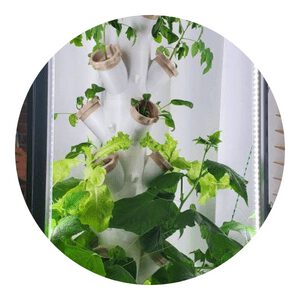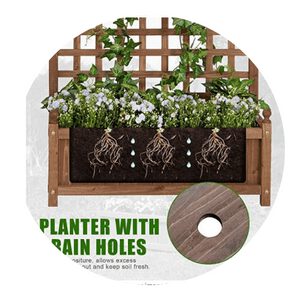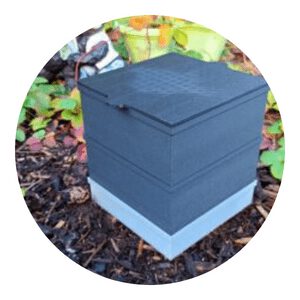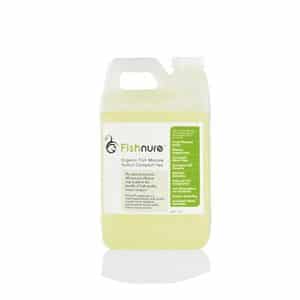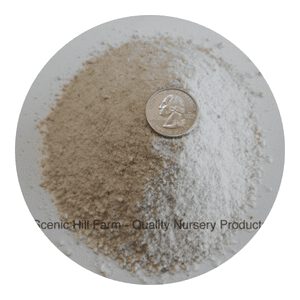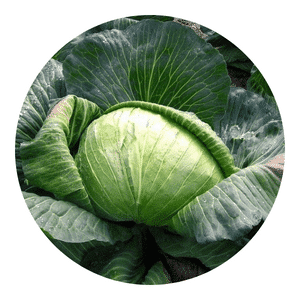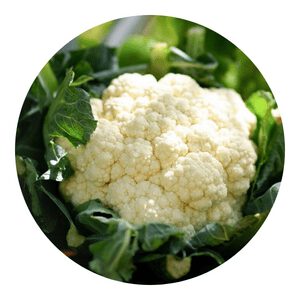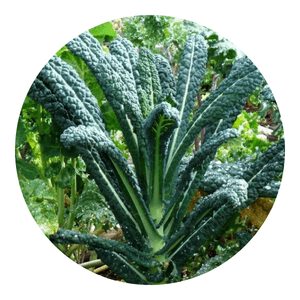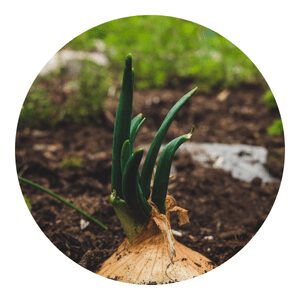How to Grow Organic Eggplant
Eggplant is a vegetable that can be grown in most climates. It is an easy crop to grow, and has few pests or diseases.
The main thing you need to do to grow eggplant is to choose the right variety for your climate and soil type.
There are several varieties of eggplant available, each with its own characteristics.
Some varieties are long and slender, while others are short and squat.
Some varieties are heat tolerant, while others are not as tolerant.
Eggplant Menu
Eggplant is a delicious vegetable that can be grown organically in your garden.
Eggplant is a delicious vegetable that can be grown organically in your garden. It is a nightshade vegetable, which means it is in the same family as tomatoes, potatoes, and peppers.
Eggplant is a great source of dietary fiber, potassium, and vitamin B6.
It can be used in many different dishes, such as ratatouille, baba ghanoush, or eggplant Parmesan.
Choosing a Site
Select a site that gets full sun and has well-drained soil.
When choosing a site for your garden, it’s important to consider the amount of sunlight the spot gets and the soil’s drainage.
A sunny spot is ideal for most plants, as they need at least six hours of direct sunlight per day to grow properly.
Well-drained soil is also key, as wet soil can lead to root rot and other plant problems.
If you’re not sure whether your site has good drainage, try watering the area and seeing how long it takes for the water to drain away.
If it takes more than an hour or so, the site probably doesn’t have good drainage and you’ll need to choose another spot for your garden.
Preparing the Soil
Add organic matter to the soil to improve its drainage and organic fertility
The quality of the soil in a garden is important for the growth of healthy plants. To improve the drainage and organic fertility of the soil, gardeners can add organic matter to the soil.
Organic matter can be added in the form of compost, manure, or green manures. Adding organic matter to the soil will help to improve plant growth and increase yields.
Planting
Sow the eggplant seeds in late spring or early summer
As the weather starts to warm up, gardeners everywhere are anxious to get their hands dirty and start planting. One of the first plants to be planted in many gardens is the eggplant.
Eggplants are a great plant to grow because they are relatively easy to grow and they produce a lot of fruit.
watering
Keep the soil moist but not wet
Organic eggplant is a delicious and nutritious vegetable that can be grown in your garden.
In order to grow organic eggplant, you need to keep the soil moist but not wet.
Make sure to water the plants regularly, and be sure to add some compost or fertilizer to the soil to provide the plants with the nutrients they need.
Harvesting
Eggplants are ready to harvest when they are dark purple or black in color.
When eggplants are dark purple or black in color, they are ready to harvest. Eggplants can be harvested by cutting them off at the stem with a sharp knife.
Eggplant fruits that are larger than 3 inches in diameter should be cut into smaller pieces so that they will ripen faster.
What is the Best Soil For Eggplants?
Eggplants need well-drained, fertile soil with a pH of 6.0 to 7.0. They prefer warm weather and do not tolerate frost.
Eggplants need plenty of nitrogen, so a nitrogen-rich fertilizer is important. Be sure to keep the soil moist, but not too wet, as eggplants are susceptible to root rot.
If you are growing eggplants in containers, use a high-quality potting mix that is designed for vegetables.
These mixes usually contain compost or other organic matter to help improve drainage and aeration while still holding moisture.
How Many Eggplants Will One Plant Produce?
Eggplants are a versatile and delicious vegetable that can be used in a variety of dishes.
They are also relatively easy to grow, making them a great option for those looking to start a garden.
But how many eggplants will one plant produce?
On average, one eggplant plant will yield about 5-6 eggplants. However, this can vary depending on the variety of eggplant, as well as the growing conditions.
For example, if the plant is grown in ideal conditions and is well-cared for, it may produce 8 or more eggplants.
Conversely, if the plant experiences stress or poor growing conditions, it may only produce 3-4 eggplants.
So if you’re looking to add some eggplant to your garden, expect to harvest 5-6 per plant.
What Should You Plant Next to Eggplant?
When it comes to planting eggplant, there are a few things to keep in mind. Eggplant need full sun and well-drained soil with a pH between 6.0 and 7.0.
They also need room to spread out, so be sure to give them plenty of space when planting. As for what to plant next to eggplant, there are a few good options.
One option is to plant tomatoes next to eggplant.
Tomatoes and eggplant are both members of the nightshade family, so they share many similar growing requirements.
Additionally, tomatoes can help protect eggplant from certain pests and diseases.
Another good option is to plant basil next to eggplant.
Basil repels many of the same pests that attack eggplant, and it also makes a delicious addition to any dish featuring eggplant.
how to get rid of ants on eggplants plants
Organic eggplants are a healthy and delicious addition to any meal, but they can be a pain to keep pest-free.
Ants are one of the most common pests that attack eggplants, and they can quickly ruin a crop.
There are a few simple steps you can take to get rid of ants on your eggplant plants.
The first step is to identify where the ants are coming from. If they’re coming from outside, you can try sealing up any cracks or holes in your home’s foundation or exterior walls.
If the ants are coming from inside, there may be an infestation in your home that needs to be dealt with separately.
Once you know where the ants are coming from, you can start to treat the problem.
Tips to Keep Ants Away from Eggplants
If you’re growing eggplants organically, you may be wondering how to keep ants away from your plants.
Here are a few tips to help you out:
1. Make sure there are no cracks or crevices in your eggplant pots or planters. Ants can enter through even the smallest of openings, so it’s important to seal them up.
2. Keep the area around your eggplants clean and free of debris. Ants are attracted to food scraps and other organic matter, so cleaning up regularly will help deter them.
3. Use diatomaceous earth around the base of your eggplants.
This natural substance is safe for humans and animals but deadly for ants, so it can be an effective way to keep them away from your plants.
4. Try using ant traps near your eggplants.
What is the best month to plant eggplant?
Late spring is the best time to plant eggplant. This allows the plants plenty of time to mature before the hot summer months.
Eggplant prefers warm weather and does not do well in cold climates. If you live in a colder region, start your plants indoors in late winter and transplant them outdoors after the last frost date.
Eggplant is a heat-loving plant, so it’s important to choose a planting site carefully. Pick a spot that gets full sun and has well-drained soil.
Eggplant also does well in raised beds or containers.
If you live in a hot climate, provide some afternoon shade for your plants to prevent them from getting too stressed by the heat.
When you’re ready to plant, dig holes that are twice as wide as the roots of your seedlings but not quite as deep.
How often should eggplant be watered?
Organic eggplant should be watered about twice a week. They need moist soil, but too much water can lead to problems such as root rot.
Be sure to check the soil regularly and water when necessary. Eggplants are drought-tolerant, so you may need to water less often during cooler months or if you live in an area with low rainfall.
Eggplant Varieties
Eggplants come in a wide variety of shapes, sizes, and colors. They can be small and round, or long and skinny.
They can be purple, white, or even green. Some have smooth skin, while others are bumpy.
No matter what kind of eggplant you choose, they all have one thing in common: they’re delicious!
Eggplants can be cooked in many different ways, so you’re sure to find a recipe that you love.

Nubia

Prospera

Green Doll

Turkish

Onaga

Hairy

Fairy Tale

Cluster

White

Calliope Eggplant

Kamo

Beatrice

Ping Tung Long
How to grow eggplant hydroponically
Eggplants are a great choice for hydroponic gardening. They are relatively easy to grow and maintain, and can provide a bountiful harvest.
Here are some tips on how to grow eggplant hydroponically:
To get started, you will need some basic supplies.
First, you will need an eggplant seedling or two. You can purchase these from a nursery or online retailer.
Next, you will need a growing medium. This can be anything from gravel to clay pellets to coconut fiber.
Whatever you choose, make sure it is sterile and free of contaminants.
Finally, you will need a nutrient solution designed specifically for hydroponic gardening.
Once you have your supplies, it’s time to set up your growing system.
There are many different ways to do this, but one of the most popular is the drip system.
How long does it take to grow eggplant hydroponically?
Eggplant is a fast-growing plant that can be grown hydroponically in as little as six weeks.
The key to success with growing eggplant hydroponically is to start with healthy plants. Healthy plants will have strong root systems and will be free of pests and diseases.
Once the plants are in the system, they will need to be fertilized every two weeks and given plenty of water and light. With proper care, eggplant can be harvested within two months of planting.
Can you grow eggplant in aquaponics?
Aquaponics is a type of agriculture where plants are grown in water instead of soil.
The water is rich in nutrients from fish waste, making it an ideal growing environment for plants.
Eggplant is a popular crop to grow in aquaponics because it is relatively easy to care for and does not require a lot of space.
Eggplant thrives in warm climates, so aquaponics systems that are located in cooler areas may need to provide additional heat to the water to ensure that the eggplant plants are able to grow properly.
Eggplant prefers a pH level between 6.0 and 7.0, so regular testing of the water’s pH levels is necessary to ensure that the plants are getting the nutrients they need.
Eggplant is a versatile crop that can be used in many different dishes.
how to grow eggplant in greenhouse
If you’re interested in growing eggplant organically, you can do so in a greenhouse. This is a great option if you live in an area with a shorter growing season.
Here are some tips for growing eggplant in a greenhouse:
Eggplant prefers warm weather, so aim for a greenhouse temperature of 75-85 degrees Fahrenheit.
If your greenhouse doesn’t have automatic temperature control, you’ll need to monitor the temperature carefully and adjust it manually as needed.
Eggplant also needs plenty of sun. If possible, position your greenhouse so that it gets at least 8 hours of direct sunlight per day.
You may need to supplement with artificial lighting if your location doesn’t get enough natural light.
To promote good drainage, grow eggplant in raised beds or containers filled with an organic potting mix.
What is the Best Organic Fertilizer For Eggplant?
Organic eggplant growers have many choices when it comes to finding the best organic fertilizer for their plants.
One option is to use composted manure, which can be applied either as a top dressing or incorporated into the soil before planting.
Another popular choice is bone meal, which is high in phosphorus and can help promote strong root growth.
For a comprehensive nutrient boost, some growers prefer to use a complete organic fertilizer that contains a balance of nitrogen, phosphorus, and potassium.
Whichever type of organic fertilizer you choose, be sure to apply it at the recommended rate and frequency for best results.
Compost
Organic eggplant growers have long known the benefits of using compost as a fertilizer.
Made from decomposed organic matter, compost enriches the soil with nutrients that are essential for healthy plant growth.
It also helps improve drainage and aeration in heavy soils, and provides a slow release of moisture to plant roots.
To use compost as a fertilizer for eggplants, simply mix it into the soil around the plants at a rate of 2-3 pounds per 100 square feet.
For best results, apply compost in early spring before planting, and again in mid-summer after the plants have started bearing fruit.
Worm castings
Eggplant, also known as aubergine, is a nightshade vegetable that is commonly used in Mediterranean cooking.
The fruit of the eggplant is long and slender, with a smooth skin that can be either purple or white.
Eggplant is a very versatile vegetable, and can be roasted, grilled, stir-fried, or even made into a dips or spreads.
Worm castings organic fertilizer is an excellent choice for eggplants. This type of fertilizer will provide the plants with the nutrients they need to produce healthy fruits.
Worm castings organic fertilizer is also very easy to use; simply mix it with water and apply it to the soil around the plants.
Horse manure
Horse manure is an excellent organic fertilizer for eggplant. It is high in nitrogen and other essential nutrients that eggplants need for healthy growth.
Here are some tips on how to use horse manure as an organic fertilizer for your eggplants:
1. Horse manure should be well-rotted before using it as fertilizer. If it is not well-rotted, it can burn the roots of your plants.
2. Spread a layer of horse manure around the base of your eggplants, being careful not to get any on the leaves.
3. Water the area well after applying the manure, to help it break down and release its nutrients into the soil.
Cow manure
Organic eggplant farmers often use cow manure as an organic fertilizer.
Cow manure is high in nitrogen, phosphorus, and potassium, which are all essential nutrients for eggplants. It is also rich in organic matter, which helps improve soil structure and drainage.
To use cow manure as an organic fertilizer for eggplants, farmers typically mix it with other organic materials such as compost or leaves.
This helps to create a more balanced fertilizer that will not burn the plants. Farmers will then apply the mixture to the base of the eggplant plants, being careful not to get any on the leaves or stems.
Sheep manure
Eggplants are a delicious and healthy addition to any meal, and they’re easy to grow at home using organic methods.
One of the best ways to fertilize your eggplant plants is with sheep manure.
Sheep manure is high in nitrogen and other nutrients that eggplants need to thrive.
Here’s how to use it:
1. Collect or purchase sheep manure. You can often find it for sale at garden stores, or you can ask a local farmer if they have any available.
2. Spread the manure around the base of your eggplant plants, being careful not to get any on the leaves or stems.
3. Water the plants well after applying the manure, so that it can start working its way into the soil.
Donkey manure
Eggplants are a common vegetable in many gardens, and they can be grown using Donkey manure organic fertilizer.
This type of fertilizer is made from the droppings of donkeys, and it is a great source of nutrients for eggplants.
When using this fertilizer, it is important to follow the instructions on the package, as too much or too little fertilizer can damage the eggplant plants.
Apply the fertilizer around the base of the plant, being careful not to get any on the leaves or stems.
Water the area well after applying the fertilizer, and then wait for the eggplants to mature and produce fruit.
Goat manure
Organic eggplant farmers may find goat manure to be a useful organic fertilizer.
This is because goat manure contains high levels of nitrogen, potassium, and phosphorus, which are all nutrients that eggplants need to grow well.
In addition, goat manure is relatively low in carbon and will not raise the pH of the soil like some other manures can.
To use goat manure as an organic fertilizer for eggplants, mix it into the soil around the plants at a rate of 1 part manure to 10 parts soil.
This will provide the plants with a slow release of nutrients over time.
Be sure to water the area well after applying the fertilizer so that it can work its way down to the roots of the plants.
Rabbit manure
Organic eggplant growers looking for an alternative to chemical fertilizers may want to consider using rabbit manure.
This type of manure is high in nitrogen and other nutrients that eggplants need for healthy growth.
Rabbit manure also has the advantage of being relatively low in odor compared to other types of manure.
To use rabbit manure as an organic fertilizer, simply spread it around the base of eggplant plants at a rate of about 1/2 pound per plant.
For best results, apply the fertilizer every four weeks or so throughout the growing season. Be sure to wear gloves and a mask when handling rabbit manure, as it can carry harmful bacteria.
Chicken manure
When it comes to eggplants, chicken manure is one of the best organic fertilizers you can use.
Here’s a step-by-step guide on how to use chicken manure to fertilize your eggplants:
1. Start by mixing the chicken manure with some water. This will help to create a more even mixture that can be easily applied to your eggplants.
2. Apply the mixture to the base of your eggplants, being sure to get it into the root system.
3. Water your eggplants as usual, and you’ll start to see results within a few weeks! The chicken manure will help to promote growth and produce bigger, healthier eggplants.
Fish manure
Eggplants need a lot of nitrogen to produce bountiful fruit, and one way to give them the nutrients they need is through fish manure organic fertilizer.
This fertilizer is high in nitrogen and also contains other important nutrients that eggplants need, such as phosphorus and potassium.
Fish manure organic fertilizer is made from dried and decomposed fish, so it’s important to make sure you get a good quality product from a reputable source.
You can apply fish manure organic fertilizer directly to the soil around your eggplant plants, or you can mix it with water and use it as a foliar spray.
Be sure to follow the directions on the package for best results.
Green manure
Green manure is an organic way to fertilize eggplants. It involves using green plants, such as clover, rye, and vetch, to add nutrients to the soil.
The plants are grown specifically for this purpose and then tilled under the soil before they flower or set seed. This adds nitrogen, phosphorus, and other minerals to the soil, which helps eggplants grow.
To use green manure, first choose a site that gets full sun and has well-drained soil. Prepare the soil by tilling it deeply.
Then sow the seeds of your chosen green manure crop in late summer or early fall.
The plants will grow through the winter and can be tilled under in the spring.
Green manure is a cheap and easy way to fertilize eggplants organically.
Blood meal
Eggplants are a warm-season crop that does best in full sun and rich, well-drained soil.
They are heavy feeders, so be sure to fertilize regularly throughout the growing season.
Blood meal is a great organic fertilizer for eggplants.
It is high in nitrogen, which helps promote leafy growth.
Apply blood meal to the soil around your eggplants at a rate of 1 pound per 100 square feet.
Be careful not to get any on the leaves or stem, as this can burn the plant.
To use blood meal as a side-dressing, simply scatter it around the base of the plant and lightly incorporation into the top inch of soil.
This should be done every few weeks during the growing season.
Bone meal
Eggplant is a nutrient-hungry plant, so using bone meal organic fertilizer is a great way to give it a boost.
Bone meal is high in phosphorus and nitrogen, which are essential for healthy plant growth.
It’s easy to use, too – simply mix it into the soil around your eggplant plants at a rate of 1 cup per 10 square feet.
For best results, apply bone meal fertilizer once every two weeks throughout the growing season.
Alpaca manure
Alpaca manure is an excellent organic fertilizer for eggplants.
It is high in nitrogen and other nutrients that eggplants need to grow healthy and produce abundant fruit.
To use alpaca manure as an organic fertilizer, simply spread it around the base of the plant once a month.
Eggplants are heavy feeders, so be sure to apply a generous amount of manure.
Water the area well after applying the fertilizer to help break down the manure and release its nutrients into the soil.
The Health Benefits of Eggplant
Eaten raw, eggplant is loaded with nutrients. Despite its bitter taste, the fruit is good for you.
The skin is tough and should be removed before cooking, though. It is best to slice and rinse the fruit before cooking.
In the event of leftovers, you can bake, puree, or add to a soup.
You can also freeze it to enjoy it later. You can prepare roasted vegetable couscous to add even more nutrients to your diet.
This dish is perfect for picnics.
The high fiber content of eggplant is a key factor in boosting gastrointestinal health. It prevents the absorption of cholesterol.
This is because it binds to bile in the digestive system, increasing blood flow.
Eating more eggplants helps lower your triglycerides and improves your cardiovascular system.
It can help those with cardiovascular problems.
The food can help prevent and reverse some forms of osteoporosis.
It contains antioxidants, including scopoletin, which regulates the production of the feel-good chemical serotonin. It can reduce depression, improve mood, and reduce stress.
It also inhibits the activity of free radicals in the skin, which can damage cells.
As a result, eggplant can help to prevent wrinkles and other signs of aging. It can help to maintain bone strength.
It may even improve your mood.
Click To Grow
Helps Us Grow – Share If You Like


